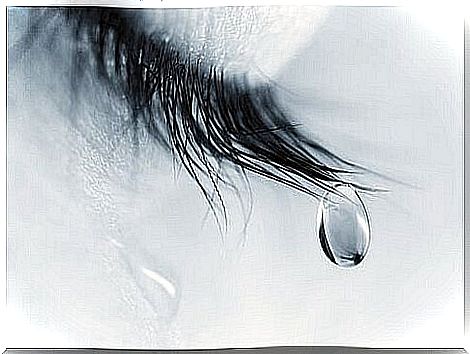Finding An End To Begin Again: The Mourning Process

When we close a chapter in our lives, it is the end of a story. When we say goodbye, we write the end of the book. When we do not find an end and we do not move on from anything, it will follow us. We will continue to repeat the same thing until we can put the full stop at the end of the sentence and press “enter”. Through the grieving process we can write a new start and start again on a new page.
Grief is defined as the process of emotional adjustment after a loss of some kind. A loss does not necessarily mean death. It is true that this is what we associate most with the word in our collective subconscious, but it can also be used to refer to separations, new jobs, moving…
The steps of grief
The different stages of grief, as suggested by Dr. E. Kluber Ross, are as follows:
- Denial: The grieving person refuses to accept the loss. He may also be in a state of shock that prevents him from starting on the path that he inevitably has to go.
- Anger: At this stage, the grieving person shows frustration and anger. He can show these feelings by the circumstances that caused the loss, it can go beyond himself, or other people, etc.
- Negotiations: In the face of the loss, he tries to find solutions. In the event of the loss of a loved one, this negotiation phase may include returning to activities that he did in the company of the person who died.

- Sadness: In this stage, the grieving person experiences their loss through pain, and he works with the sadness that comes up. It is a phase in which one often withdraws into oneself.
- Approval: At this stage, the person becomes aware of the loss and the moment they are in. He accepts it and tries to adapt to the new situation. As well as put together the pieces that are left.
These stages are not the same for everyone. They also do not occur in this particular order or last for a specific period of time. This list is only to help you understand the process. The important thing about this list, when working with a person who is grieving, is to know that in each phase he will have a different attitude to his grief. This attitude will determine the tools we have available to him and the tasks we propose.
Without a proper end, all processes tend to repeat themselves, stagnate or relapse. All the faults we see in others that we have ignored or shut in without having dealt with them first, take us in the same direction. We must experience the pain of loss. We need to see how we feel, and we need to extract the energy from our anger so that we can accept our sadness as part of who we are.
If we do not find any kind of termination, it is like just putting on a band-aid on a bleeding wound. We only cover the surface of what hurts us. The relief is temporary. It only lasts until we come across something else.
Work with the pain of refraining from suffering
In the book The Road of Tears , Jorge Bucay explains the following:

The pain we must feel is a healthy feeling. There is a feeling that the wound is healing. It connects us with our inner self and helps us deal with the loss. It gives us time for ourselves, it cleanses us and meets a need.
No emotions are dysfunctional. This is why loss involves sadness, pain, distance, anger, etc. These are stages, but if they last longer than necessary and they make it impossible to live life over a long period of time, it is time to ask for help. When sadness turns into depression, anger into unwarranted aggression, distance to personal neglect, or pain into anxiety, well then there is something wrong with the healing process. We are not on the right track of tears. We need to ask for help.
What role do I have in the grieving process?
Knowing why a phase is over, and looking for the positive experience I gained from it, helps me get to know myself better. Understanding what went wrong, what I did wrong, helps me understand how I can get better. I can learn what I want to change, what I want to keep, or what I would have done better.

The grieving process takes me to a special kind of end. It marks the end of a story. It is not a passive process, it requires emotion, action, ambition and strength to continue. Writing a good ending requires personal reflection. Then we can begin a new chapter with everything we have learned and enjoyed from the past.









